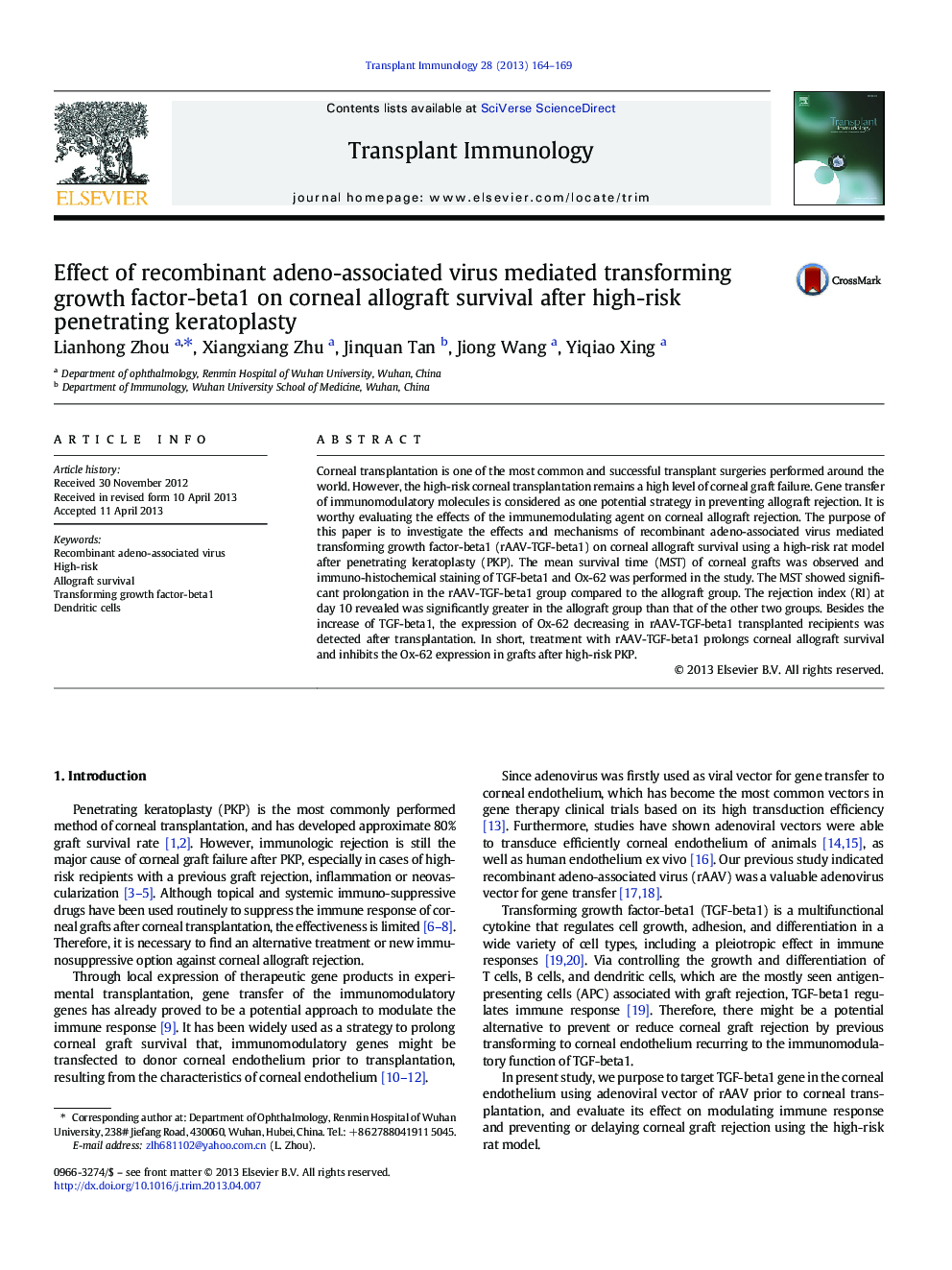| Article ID | Journal | Published Year | Pages | File Type |
|---|---|---|---|---|
| 6126067 | Transplant Immunology | 2013 | 6 Pages |
Abstract
Corneal transplantation is one of the most common and successful transplant surgeries performed around the world. However, the high-risk corneal transplantation remains a high level of corneal graft failure. Gene transfer of immunomodulatory molecules is considered as one potential strategy in preventing allograft rejection. It is worthy evaluating the effects of the immunemodulating agent on corneal allograft rejection. The purpose of this paper is to investigate the effects and mechanisms of recombinant adeno-associated virus mediated transforming growth factor-beta1 (rAAV-TGF-beta1) on corneal allograft survival using a high-risk rat model after penetrating keratoplasty (PKP). The mean survival time (MST) of corneal grafts was observed and immuno-histochemical staining of TGF-beta1 and Ox-62 was performed in the study. The MST showed significant prolongation in the rAAV-TGF-beta1 group compared to the allograft group. The rejection index (RI) at day 10 revealed was significantly greater in the allograft group than that of the other two groups. Besides the increase of TGF-beta1, the expression of Ox-62 decreasing in rAAV-TGF-beta1 transplanted recipients was detected after transplantation. In short, treatment with rAAV-TGF-beta1 prolongs corneal allograft survival and inhibits the Ox-62 expression in grafts after high-risk PKP.
Keywords
Related Topics
Life Sciences
Immunology and Microbiology
Immunology
Authors
Lianhong Zhou, Xiangxiang Zhu, Jinquan Tan, Jiong Wang, Yiqiao Xing,
